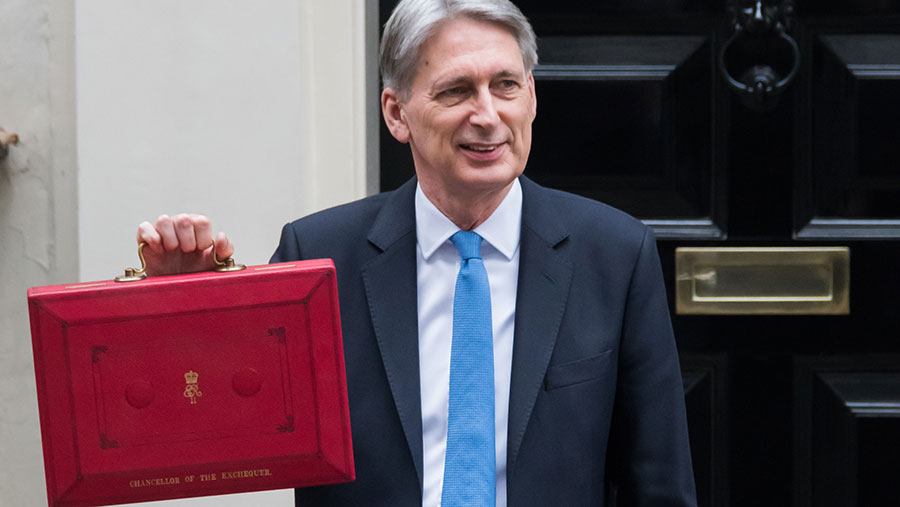Budget 2017: What farmers need to know
 © Nils Jorgensen/Rex/Shutterstock
© Nils Jorgensen/Rex/Shutterstock Housing, tax, fuel duty and wage rates were among the subjects of the chancellor’s Budget.
“Based on the detail we know at this stage of what is included in the Budget, there was very little announced to please or disappoint the farming community.
“However, as is often the case, we need to see the final detail before making a conclusive judgement,” said Peter Griffiths, tax director at Hazelwoods.
See also: Building affordable rural housing – how can landowners help?
Housing
- Young farmers and workers looking to get on the farming ladder in expensive rural areas will, from today, not have to pay stamp duty when buying their first home up to the value of £300,000.
- Opportunities may arise for farmers with land near to developments as the chancellor announced £44bn of capital funding over the next five years with the aim of building 300,000 new homes a year. The construction of five new garden cities was also announced.
- However, an overhaul of the planning system will focus on urban areas, so urgently needed housing in rural areas may still be a long way off.
Wages
- Farmers with staff will face a further rise in wage bills. From April 2018, the national living wage will rise by 4.4% from £7.50/hour to £7.83/hour, costing an extra £600 in wages over a year.
- This will further erode margins for labour-intensive farming businesses, said Nicholas M Smith at Duncan and Toplis.
Tax system
- Indexation Allowance (tax relief for inflation) will be frozen from January, which will make tax liabilities on capital gains more expensive as time goes on where land might be sold in the future, according to Mr Smith.
- Beware of having empty houses – local authorities will be able to charge for this and the devil will be in the detail as to whether this will affect worker cottages and holiday lets, says Rob Hitch at Dodd Accountants.
- Those running small farms and rural businesses will heave a sigh of relief that they won‘t be faced with expensive accounting admin as the chancellor has decided to keep the threshold for VAT registration at £85,000.
- VAT threshold being frozen at £85,000 for the next two years will have little impact for most farming businesses. which would usually be registered voluntarily, but a consultation on the cliff edge of a registration threshold might introduce a tapered system, which could affect registered businesses below or around the threshold. Such a system might restrict input tax reclaims for smaller farming businesses, said Tim Price of NFU Mutual.
Fuel duty
- The rise in fuel duty that was scheduled for next year will be frozen.
- However, from April 2018 there will be a levy on diesel cars to fund air quality plans, although it is uncertain whether this will apply to businesses.
- “No increase in fuel duty rates for petrol or diesel is a huge relief for farmers and their families who currently have no alternative to these fuels to work and get about in the countryside,” said Mr Price.
See more
